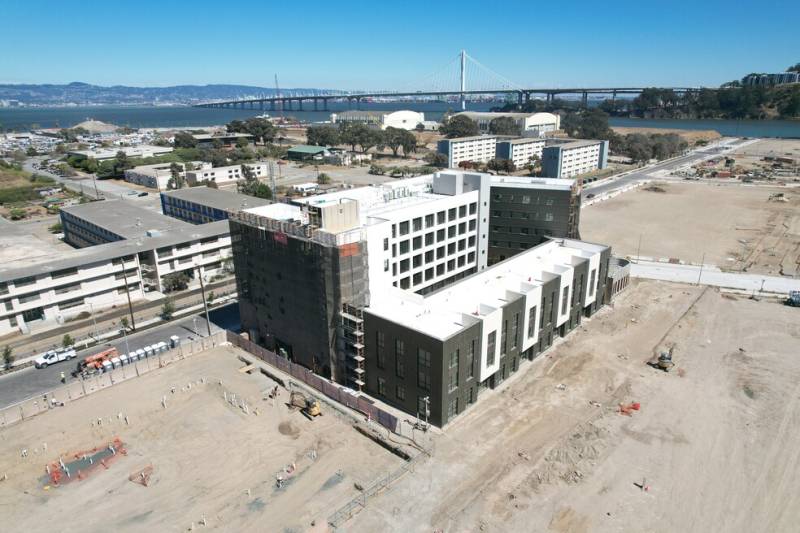The recent downfall of Silicon Valley Bank (SVB) has a number of major Bay Area affordable housing developers scrambling to find new lending options for projects that are desperately needed to address the region’s housing crisis.
KQED has so far identified 11 in-process or recently completed affordable housing projects in several Bay Area cities — comprising more than 1,000 units — dependent on loans from SVB, the Santa Clara-based lender that failed on Friday following a social media-fueled bank run.
“When we woke up Friday, it was like, ‘What do you mean SVB is going away?’” said Linda Mandolini, president of Eden Housing, an affordable housing developer with projects across the Bay Area, including three funded with SVB loans. Eden was also prepared to secure a loan with SVB for a new project later this spring, just as federal officials seized the bank’s $209 billion in assets.
SVB has loaned or invested nearly $2 billion to fund affordable housing projects in the Bay Area, according to its website.
“All of our financing is tied to time,” said Mandolini. “We don’t want to stop the projects.”
Since the Federal Deposit Insurance Corporation (FDIC) stepped in Friday, Mandolini said, she has been assured that lines of credit from SVB will continue for projects already under construction — including the $42 million in loans SVB originally agreed to. But she said the bank’s collapse leaves many unanswered questions — even for Eden’s already completed projects — like how much of the more than $50 million the bank promised in continued financing will now actually be available.
In San Francisco, at least five affordable housing projects at varying stages of development, comprising nearly 500 units, were largely funded by SVB loans and are now at risk. They include the 104-unit Maceo May development on Treasure Island, and the 135-unit Shirley Chisholm Village in the Outer Sunset.
The city, in partnership with Mercy Housing, was also preparing to finalize a loan contract with Silicon Valley Bank last week for the Kelsey Civic Center, a proposed 112-unit affordable housing development directly across the street from City Hall.
San Francisco officials say they are now seeking alternative lending and financing options.
“We are keeping an eye on other lenders that have worked with project sponsors on affordable housing,” said Anne Stanley, a spokesperson for the Mayor’s Office of Housing and Community Development. “Right now we are just trying to make sure the next step doesn’t result in any additional delays and new construction loans are consistent.”
Timing is everything in housing construction. The longer it takes to secure new deals, the more costs developers and housing providers absorb.

